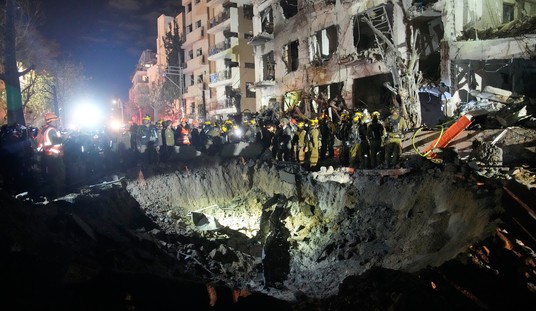Last night on MSNBC, Chris Hayes interviewed Spike Lee about his upcoming film “Chi-Raq”, a musical remix of Aristophanes’s farce “Lysistratawhich” that chronicles the violence, murder and mayhem occurring in the streets of Chicago every day. Lee has faced some criticism for the film, including from the left and particularly from the #BlackLivesMatter crowd over the fact that, to put it simply, it’s not all about cops killing kids.
The film essentially works on the idea of women in the city withholding sex to put a stop to the insane number of murders that occur on its streets. It is an explicit recognition of the problem of black-on-black crime and gangs, which is becoming a forbidden topic among progressives on the grounds that it derails “the movement.” Chris Hayes confronted Lee with this criticism in a way that suggested he was enabling a white conspiracy to divert attention from crimes against the black community from outside it, and the sparks flew sudden and hot.
The director simply wasn’t having it, and gave Hayes a quick but unforgettable lesson in loss, and how Black Lives Matter even when they are taken by other Black Lives.
Video and transcript via Mediate.
Spike immediately goes on offense over the suggestion he’s aiding some right-wing white conspiracy. “Look at my body of my work,” says Lee.
But then he really gets down to it.
Sir … It doesn’t matter to me what color or complexion that pulls the trigger. As an artist, I’m going to look at it, and look at both sides. There’s a specific scene where Samuel L. Jackson talks about it. Where he’s in the middle, there’s a gang banger on one side and Chicago cop on other. If you’re a parent — whether your child got killed by a gang banger or cop, you still feel the same.
And, boom, there it is: that singular, unvarnished truth. A taboo truth.
In as much as a person can use the issue of black-on-black crime to distract from racist or criminal behavior by police, the reverse is also true. You can use the issue of police brutality or murder to distract from the very real crime and violence taking place in our cities, in places like New Orleans and Chicago.
While the chattering classes chatter, out there in the real world are moms and dads, brothers and sisters, who are mourning. Who are afraid. There are mass shootings. There are child executions. These lives mattered. And Spike Lee is an artist and a director bringing a societal ill vividly to the attention of others. Left or right shouldn’t enter into it.
This does not, and should not, suggest that black-on-black crime is the “real” or only problem, or that you must confront it first or exclusively. No one should let any agenda become so important that they turn their back or their heart on those who are suffering. This is true for those who would ignore the very real and very serious problem of cop-on-black crime, and the very real and very serious problem of black-on-black crime. Because in the end, it is human-on-human crime.
I would only add that it does not make the sentiment that Black Lives Matter any less true to say that All Lives Matter. When a person is murdered, as director Spike Lee told Chris Hayes, “you still feel the same.”












Join the conversation as a VIP Member